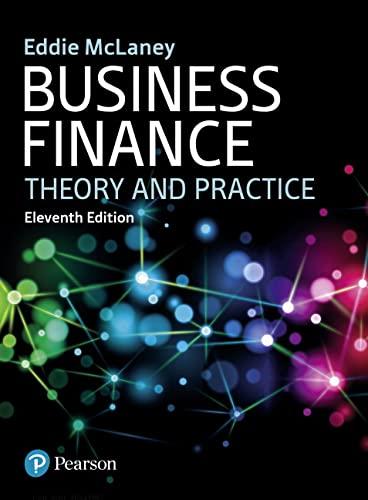

5. It is being decided whether or not to replace an existing piece of equipment with a newer, more productive one that costs $65,000 and has an estimated MV of $18,000 at the end of its useful life of six years. Installation charges for the new equipment will amount to $2,500; this is not added to the capital investment but will be an expensed item during the first year of operation. MACRS (GDS) depreciation (5-year property class) will be used. The new equipment will reduce direct costs (labor, maintenance, rework, etc.) by $11,000 in the first year, and this amount is expected to increase by $600 each year thereafter during its six-year life. It is also known that the BV of the fully depreciated old machine is SO but that its present fair MV is $14,000. The MV of the old machine will be zero in six years. The effective income tax rate is 45%. a. Determine the prospective after-tax incremental cash flow associated with the new equipment if it is believed that the existing machine could perform satisfactorily for six more years. b. Assume that the after-tax MARR is 6% per year. Based on the ERR method, should you replace the defender with the challenger? Assume e = MARR. Click the icon to view the GDS Recovery Rates (r) for the 5-year property class. Click the icon to view the interest and annuity table for discrete compounding when the MARR is 6% per year. a. Fill in the table below. (Round to the nearest dollar.) EOY A Incremental Cash Flows (Challenger Defender) (Due to MV) b. ERRA % (Round to one decimal place.) The defender (1) be replaced with the challenger. 7: More Info GDS Recovery Rates (r) Year 5-year Property Class 0.2000 0.3200 0.1920 0.1152 0.1152 0.0576 Discrete Compounding; 1= 6% Single Payment Uniform Series Compound Compound Sinking Amount Present Amount Present Fund Factor Worth Factor Factor Worth Factor Factor To Find F To Find P To Find F To Find P To Find A Given P Given F Given A Given A Given F FP PIF RAPIA AIF 1.0600 0.9434 1.0000 0.9434 1.0000 1.1236 0.8900 2.0600 1.8334 0.4854 1.1910 0.8396 3.1836 2.6730 0.3141 1.2625 0.7921 4.3746 3.4651 0.2286 1.3382 0.7473 5.6371 4.2124 0.1774 1.4185 0.7050 6.9753 4.9173 0.1434 1.5036 0.6651 8.3938 5.5824 0.1191 1.5938 0.6274 9.8975 6.2098 0.1010 1.6895 0.5919 11.4913 6.8017 0.0870 1.7908 0.5584 13.1808 7.3601 0.0759 Capital Recovery Factor To Find A Given P AIP 1.0600 0.5454 0.3741 0.2886 0.2374 0.2034 0.1791 0.1610 0.1470 0.1359 should not should 5. It is being decided whether or not to replace an existing piece of equipment with a newer, more productive one that costs $65,000 and has an estimated MV of $18,000 at the end of its useful life of six years. Installation charges for the new equipment will amount to $2,500; this is not added to the capital investment but will be an expensed item during the first year of operation. MACRS (GDS) depreciation (5-year property class) will be used. The new equipment will reduce direct costs (labor, maintenance, rework, etc.) by $11,000 in the first year, and this amount is expected to increase by $600 each year thereafter during its six-year life. It is also known that the BV of the fully depreciated old machine is SO but that its present fair MV is $14,000. The MV of the old machine will be zero in six years. The effective income tax rate is 45%. a. Determine the prospective after-tax incremental cash flow associated with the new equipment if it is believed that the existing machine could perform satisfactorily for six more years. b. Assume that the after-tax MARR is 6% per year. Based on the ERR method, should you replace the defender with the challenger? Assume e = MARR. Click the icon to view the GDS Recovery Rates (r) for the 5-year property class. Click the icon to view the interest and annuity table for discrete compounding when the MARR is 6% per year. a. Fill in the table below. (Round to the nearest dollar.) EOY A Incremental Cash Flows (Challenger Defender) (Due to MV) b. ERRA % (Round to one decimal place.) The defender (1) be replaced with the challenger. 7: More Info GDS Recovery Rates (r) Year 5-year Property Class 0.2000 0.3200 0.1920 0.1152 0.1152 0.0576 Discrete Compounding; 1= 6% Single Payment Uniform Series Compound Compound Sinking Amount Present Amount Present Fund Factor Worth Factor Factor Worth Factor Factor To Find F To Find P To Find F To Find P To Find A Given P Given F Given A Given A Given F FP PIF RAPIA AIF 1.0600 0.9434 1.0000 0.9434 1.0000 1.1236 0.8900 2.0600 1.8334 0.4854 1.1910 0.8396 3.1836 2.6730 0.3141 1.2625 0.7921 4.3746 3.4651 0.2286 1.3382 0.7473 5.6371 4.2124 0.1774 1.4185 0.7050 6.9753 4.9173 0.1434 1.5036 0.6651 8.3938 5.5824 0.1191 1.5938 0.6274 9.8975 6.2098 0.1010 1.6895 0.5919 11.4913 6.8017 0.0870 1.7908 0.5584 13.1808 7.3601 0.0759 Capital Recovery Factor To Find A Given P AIP 1.0600 0.5454 0.3741 0.2886 0.2374 0.2034 0.1791 0.1610 0.1470 0.1359 should not should








